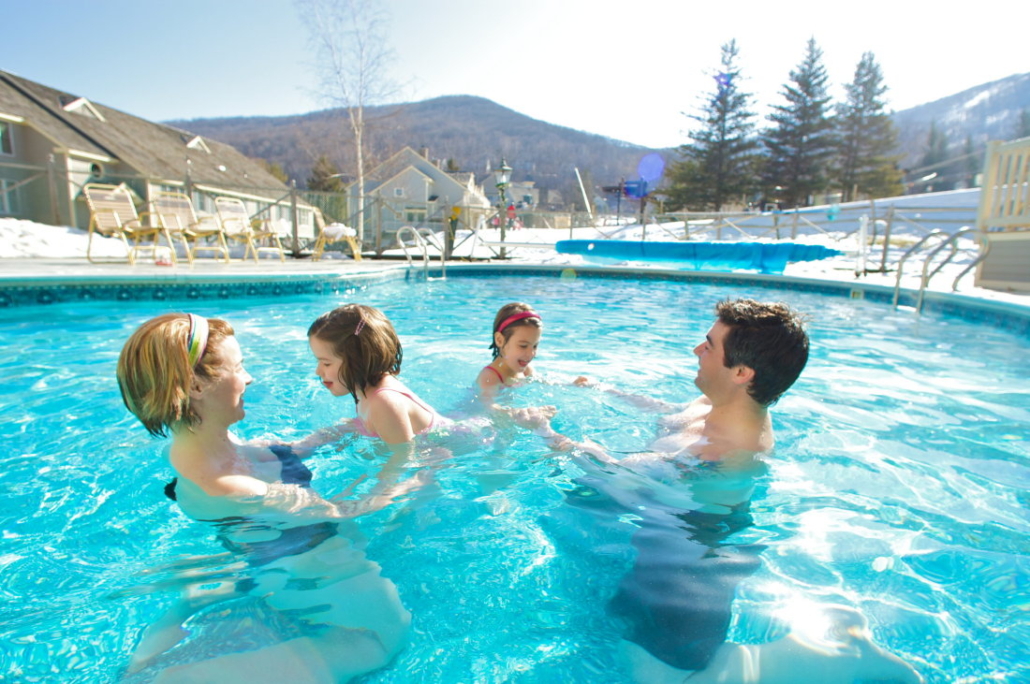Diarrhea and Swimming
You can get sick with diarrhea if you swallow contaminated recreational water—water in pools, hot tubs, water playgrounds, or oceans, lakes, and rivers. In fact, diarrhea is the most common illness reported for outbreaks linked to recreational water.
Which germs in recreational water cause diarrhea?
You can get diarrhea from germs such as
- Crypto (short for Cryptosporidium)
- Giardia
- Shigella
- Norovirus
- E. coli O157
These germs can survive in properly chlorinated water for minutes to days, depending on the germ.
How do germs that cause diarrhea spread in recreational water?
If someone is sick and has diarrhea in the water, millions of germs can contaminate the water. These germs can make other people sick if they swallow even a small amount of contaminated water. Swallowing 10 or fewer germs can make people sick. Germs can also get in the water if swimmers have poop, even tiny amounts, on their bottoms.
Pool chemicals and filters help kill germs
Filters and disinfectants (chemicals that disinfect the water, such as chlorine or bromine) work together to help kill germs in pools, hot tubs, and water playgrounds. Filters remove debris (such as leaves), which use up the disinfectant in the water. Pool staff make sure chlorine or bromine is at the level needed to kill most germs in the water within minutes. You can still be exposed to germs during the time it takes for the water to go through filters and for the disinfectant to kill germs. You can also get diarrhea from germs that are hard to kill, such as Crypto. Crypto stays alive for more than 7 days, even if water is properly filtered and disinfected.
Many places with pools use one filtration system for more than one pool, which causes water from multiple pools to mix. This means germs from one person’s body could contaminate the water in more than one pool.
How do I protect myself and those I care about?
We all share the water we swim, play, or relax in. Each of us can help protect ourselves, our families, and our friends from germs that can cause diarrhea.
Take the following steps when swimming in any type of water:
- Stay out of the water if you are sick with diarrhea.
- If you have Crypto, don’t go in the water until 2 weeks after diarrhea has completely stopped.
- Don’t poop in the water.
- Don’t swallow the water.
- Take kids on bathroom breaks and check diapers every hour.
- Change diapers away from the water’s edge to keep germs from getting in the water. Wash your hands after.
Before going in pools, water playgrounds, and hot tubs, also take these steps:
- Use test strips to make sure the water has proper free chlorine (amount of chlorine available to kill germs) or bromine level and pH.
- Free chlorine level: at least 1 part per million (ppm) in pools and water playgrounds and at least 3 ppm in hot tubs
- Bromine level: at least 3 ppm in pools and water playgrounds and at least 4 ppm in hot tubs
- pH (affects how well chlorine and bromine can kill germs): 7.2–7.8
- Most superstores, hardware stores, and pool supply stores sell test strips. Follow the directions on the test strip package.
- Shower before you get in the water.
- A 1-minute shower removes most of the dirt, sweat, and oils on your body that use up chlorine or bromine needed to kill germs.
Follow these and other healthy swimming steps to help protect you and those you care about from getting sick.

